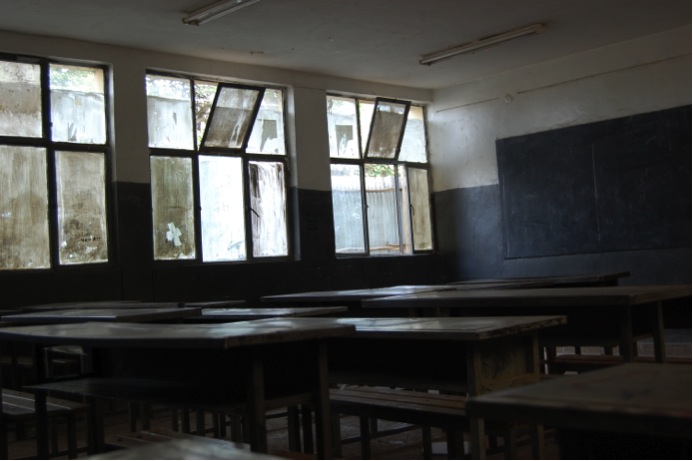Investing in Education to Fight Ebola: Private Sector Leadership

Nearly 5 million children are out of school in Guinea, Liberia and Sierra Leone due to Ebola-related school closures. Students who fall behind for a year or more are significantly more at risk of dropping out of school and this increased risk of dropout, coupled with the trauma of loss and greater poverty, could mean that large numbers of children will never return to the classroom. The impact of an increased number of out of school children and under-qualified workers will have a long-term impact not only on the health and well being of communities but also the supply of qualified future workers, country economic growth and social and economic stability. For this reason, the private sector is a key stakeholder in getting these children back to school.
Last week, GBC-Education in collaboration with A World at School launched a report calling for the responsible reopening of safe schools. This report – Ebola Emergency: Restoring Education, Creating Safe Schools and Preventing Long-term Crisis – includes recommendations for immediate action and calls on the international community to make education a priority in response efforts to the Ebola crisis. In short – learning should be prioritized immediately and schools need to be responsibly reopened as soon as possible to prevent a longer-term crisis.
GBC-Education member Oando Foundation, an independent Nigerian charity launched by the oil and gas company Oando PLC, is already leading the way on taking up this recommendation. In September the Oando Foundation responded to Ebola by initiating the Ebola Education Support Fund to assist Nigerian children who have lost one or both of their parents to Ebola. The Ebola Education Support Fund, which builds on the Oando Foundation’s existing programming for education, will cover school feeds and other related costs for these children through university graduation.
The Oando Foundation has thus worked to ensure that children and families made vulnerable will have a chance at a future and will not be further devastated by the long-term impact of this loss. Director of the Oando Foundation Tokunboh Durosaro stated that the Foundation launched the fund “to mitigate the effect of this tragedy. The fund will ensure that all affected children complete their education to university level, notwithstanding their loss.”
Oando PLC is also donating its core asset – petrol fuel – to assist in this response. It has provided vouchers for fuel to enable trucks and ambulances, donated to the World Health Organization by the Rotary Club, to transport blood samples and other necessary transportation for Ebola response. The Oando Foundation also donated over 5,000 protective suits, gloves, protective glasses and boot covers for medical workers and health centers in the affected states in support of the Ebola Containment Trust Fund; this fund is also supported by other businesses such as the telecommunications company, Etisalat, and the technology company, Samsung Electronics West Africa.
According to the U.S. Chamber of Commerce’s Ebola Outbreak – Corporate Aid Tracker, the private sector has “pledged $47.4 million in cash and additional in-kind contributions in support of relief and recovery efforts” for Ebola. This support focuses largely on the provision of supplies for healthcare workers, treatment transportation to stop the spread of the disease. While these efforts are underway, a silent crisis due to school closures continues to build with young girls being married off early, children entering the workforce and young lives transformed forever by continuing uncertainty that forces families to make these difficult choices to survive. The Oando Foundation and supporting private sector partners know well the costs of the loss of an education and have responded accordingly.
The Oando Foundation and its supporting private sector partners have learned that education not only saves lives in the short and long-term, it also builds businesses and by extension economies and prevents future crisis which are a drain on resources and workers. To this end Oando PLC Group Chief Executive Adewale Tinubu has made a clear request. “I call on other business leaders to support these recommendations and make education a priority investment during humanitarian crises.”
There is a moral and business case for action and little time to waste.
Photo courtesy of A World at School
